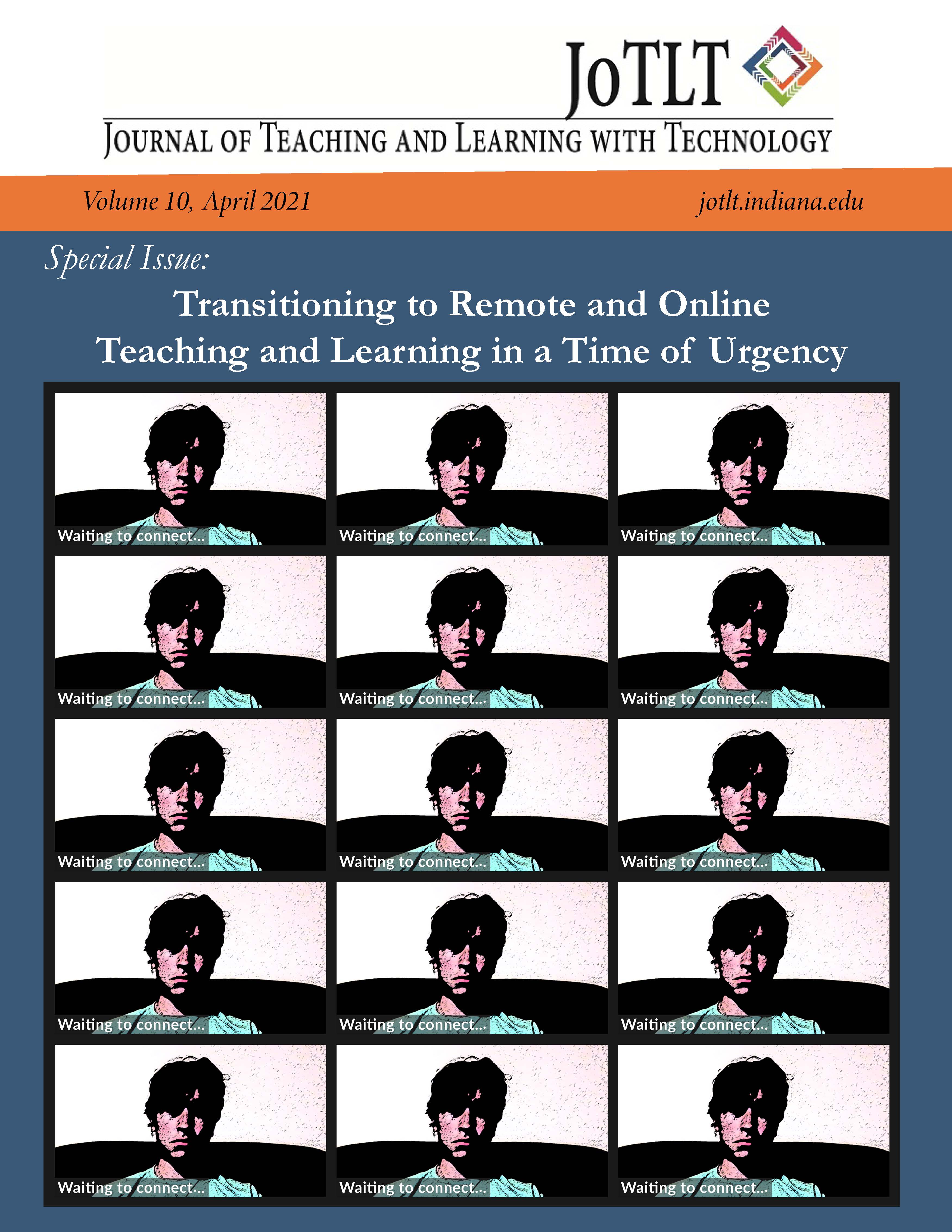Dialogue in Online Learning Spaces: How Transitioning to Online Learning during a Pandemic Impacts Critical Classroom Dialogue and Inclusivity
Main Article Content
Abstract
The sudden shift to online learning because of COVID-19 created a series of challenges for educators. Faculty took a “triage” approach to reformatting their courses quickly. And while this was a necessary approach for many reasons, you couldn’t help but wonder what students would be missing. As a Communication Studies professor, dialogue is an essential tool I use in the classroom. Effective dialogue can lead to a greater acceptance of diverse thought and individuals, as well as less divisiveness and intolerance. So, when the pandemic forced us to switch to online learning, the biggest question I had was: How do we maintain effective classroom dialogue in online learning spaces? This reflective essay seeks to answer this question in real-time, as I simultaneously prepare to teach at least another year of online courses. I explore the importance of dialogue in the classroom, how dialogue can be a conduit of inclusivity, why we should strive for inclusivity in our classrooms, and finally, how we translate these lessons to the online classroom. My hope is that this piece will help further this conversation and act as a resource for maintaining effective dialogue in every type of classroom.
Downloads
Article Details
- Authors retain copyright and grant the Journal of Teaching and Learning with Technology (JoTLT) right of first publication with the work simultaneously licensed under a Creative Commons Attribution License, (CC-BY) 4.0 International, allowing others to share the work with proper acknowledgement and citation of the work's authorship and initial publication in JoTLT.
- Authors are able to enter separate, additional contractual agreements for the non-exclusive distribution of the journal's published version of the work (e.g., post it to an institutional repository or publish it in a book), with an acknowledgement of its initial publication in JoTLT.
- In pursuit of manuscripts of the highest quality, multiple opportunities for mentoring, and greater reach and citation of JoTLT publications, JoTLT encourages authors to share their drafts to seek feedback from relevant communities unless the manuscript is already under review or in the publication queue after being accepted. In other words, to be eligible for publication in JoTLT, manuscripts should not be shared publicly (e.g., online), while under review (after being initially submitted, or after being revised and resubmitted for reconsideration), or upon notice of acceptance and before publication. Once published, authors are strongly encouraged to share the published version widely, with an acknowledgement of its initial publication in JoTLT.
